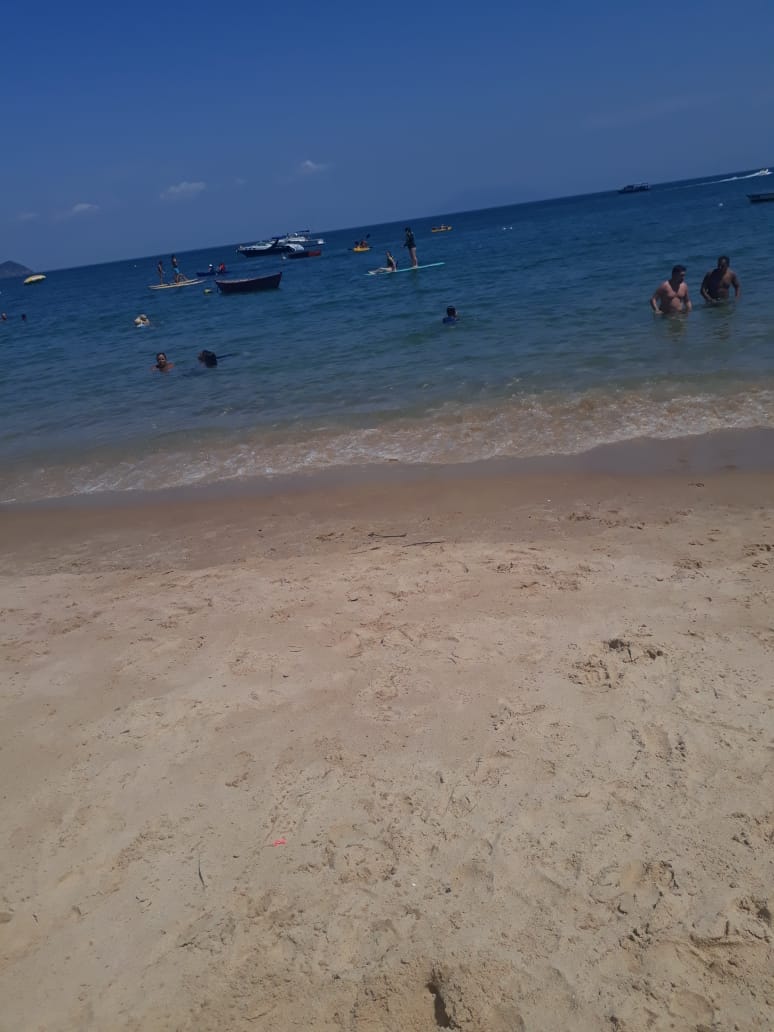Abordagens metodológicas da pesquisa em Branding no campo do Turismo: Analise das produções científicas (teses e dissertações) no Brasil
Analise das produções científicas (teses e dissertações) no Brasil
DOI:
https://doi.org/10.29149/mtr.v4i1.5168Palavras-chave:
Pesquisa; Branding; Turismo; Metodologia; Meta-análise; BrasilResumo
Este estudo analisa a produção científica das pesquisas em Branding no campo do turismo, a partir de teses e dissertações publicadas no Brasil, para identificar as suas principais características quanto a metodologia. Do exame de 39 trabalhos no banco de dados da Biblioteca Digital Brasileira de Teses e Dissertações (BDTD) foi possível conhecer e enquadrar as abordagens metodológicas adotadas pelos pesquisadores nesse específico campo. Entre os principais resultados: foi identificado a hegemonia da postura epistêmica empírico-analítica na fundamentação dos estudos; o uso de métodos essencialmente positivistas; a primazia de abordagens qualitativas, e, de caráter exploratório; e a adoção indiscriminada da estratégia do estudo de caso (único) combinado a outros delineamentos. Conclui-se que as pesquisas em Branding no turismo tem seguido uma agenda de pesquisa positivista, essencialmente empírica, e, pouco reflexiva. Espera-se que estimule a discussão sobre novas e distintas possibilidades metodológicas para esse campo específico de pesquisa, bem como a extensão para outros estudos que ampliem a compreensão sobre seus modos de investigação.
Referências
Alcañiz, J. E. B., Simó, L. A., García, I. S., & Herrera, A. A. (2008). Investigación internacional en marketing turístico: análisis de contenido sobre temas y metodologías. Revista de Turismo y Patrimonio Cultural, 6(3), pp. 391-398.
Alves, M. (2011). Reflexões sobre a pesquisa qualitativa aplicada ao turismo. Revista Turismo em Análise, 22(3), 599-613
Bispo, M. de S. (2016). Tourism as practice. Annals of Tourism Research, v.61, 170-179.
Chan, Chung Shing & Marafa, Lawal. (2013). A review of place branding methodologies in the new millennium. Place Branding and Public Diplomacy. 9. 10.1057/pb.2013.17.
Cooper, Donald R. & Schindler, Pamela S. (2003). Métodos de pesquisa em administração. 7 ed.São Paulo: Bookman,. ISBN: 85-363-0117-1
Creswell, J. W (2010). Projeto de pesquisa: Métodos qualitativo, quantitativo e misto (3ª ed., 296p.). Porto Alegre: Artmed.
Dencker, Ada de Freitas Maneti. (2007). Pesquisa em turismo: Planejamento, métodos etécnicas. São Paulo: Futura.
Eidt, K. (2004). Turismo em Análise: a produção do conhecimento na área do turismo. 2004. 186p. Dissertação de Mestrado em Turismo e Hotelaria, Universidade do Vale do Itajaí, Balneário Camboriú.
Flick, U. (2004). Uma introdução à pesquisa qualitativa. 2. ed. Porto Alegre: Bookman.
Gamboa, Sílvio Sánchez. (1995) Tendências epistemológicas: dos tecnicismos e outros “ismos” aos paradigmas científicos. In: Santos Filho, José Camilo & Gamboa, Sílvio Sánchez. Pesquisa educacional: quantidade-qualidade. São Paulo: Cortez.
_____________ (2012). Pesquisa em Educação: métodos e epistemologias.2. Ed. Chapecó: Argos.
García, J. a., Gómez, M., & Molina, A. (2011). A destination-branding model: An empirical analysis based on stakeholders. Tourism Management, 33(3), 646–661.
Gertner, D. (2011a). Unfolding and configuring two decades of research and publications on place marketing and place branding. Place Branding and Public Diplomacy, 7(2), 91–106.
Gil, A. C. (2009). Como elaborar projetos de pesquisa. 4ed. São Paulo: Atlas.
Green, Amelia, Grace, Debra & Perkins, Helen. (2016). City branding research and practice: An integrative review. Journal of Brand Management. 23. 10.1057/bm.2016.8.
Hanna S. & Rowley J. (2008) An analysis of terminology use in place branding, Place branding and public diplomacy, 4 (1), p. 61-75.
Jennings, G. (2009). Tourism research. 2.ª Ed., John Wiley & Sons Australia, Milton.
Kapferer, J. (2008) The new strategic brand management: creating and sustaining brand equity long term. England: Kogan Page
Kastenholz, E. (2004). Management of demand as a tool in sustainable tourist destination development. Journal of Sustainable Tourism, 12(5), 388-408.
Kavaratzis, M. (2004). From City Marketing to City Branding: Towards a Theoretical Framework for Developing City Brands. Place Branding, 1, 58-73.
Keller, K., & Lehmann, D. (2006) Brands and Branding: research findings and future priorities. Marketing Science, 25 (6), 740 – 759
Kotler Philip, & Dubois Bernard. (2004). Marketing management (11th ed.). London, Pearson Education.
Kovacs, M. H., Barbosa, M. L. A., Souza, A. G. & Mesquita, A. E.P. (2012). Pesquisa em turismo: uma avaliação das metodologias empregadas nos artigos publicados nos anais no triênio do seminário anual da associação brasileira de pesquisa e pós-graduação em turismo – anptur. Revista Visão e Ação. 14 (1), 19-34.
Lage, Beatriz Helena Gela; Milone, Paulo César (Organizadores). (2000). Turismo: teoria e prática. São Paulo: Atlas.
Li, X., and Petrick, J. (2008). “Reexaming the Dimensionality of Brand Loyalty: A Case of theCruise Industry.”Journal of Travel & Tourism Marketing, 25(1), 68-85.
Lucarelli, A., & Berg, P. (2011). City branding: a state-of-the-art review of the research domain. Journal of Place Management and Development, 4(1), 9–27.
Lucarelli, A., & Brorström, S. (2013). Problematizing place branding research: a meta-theoretical analysis of the literature. The Marketing Review, 13(1), 65–81.
Lucarelli, A., Berg, P. (2011). City Branding: a state-of-the-art review on the research domain. Journal of Place management and development, 4(1), 9-27.
Malhotra, N. K. (2004). Pesquisa de marketing: uma orientação aplicada. Porto Alegre: Bookman.
Marconi, M. de A. & Lakatos, E. M., (2010). Fundamentos de metodologia científica (5th ed.). São Paulo: Atlas.
Marujo, N. (2013). Sociologia do Turismo na Educação Superior em Portugal. Revista Turismo & Sociedade, v.6, n.3, p.490-507.
__________. (2016). O estudo de caso na pesquisa em turismo: Uma abordagem metodológica. Turismo: Estudos & Práticas, 5 (1), 113-128
Mikulić, J., Miličević, K., Krešić, D. (2016) The Relationship Between Brand Strength and Tourism Intensity: empirical evidence from the EU capital cities. International Journal of Culture, Tourism and Hospitality Research, 10(1), 14-23
Ocke, Marco Antonio de Moraes, & Ikeda, Ana Akemi. (2014). Marketing de lugar: estado da arte e perspectivas futuras. Revista de Administração (São Paulo), 49(4), 671-683.
Oguztimur, S., Akturan, U. (2015) Synthesis of City Branding Literature (1988–2014) as a Research Domain. International Journal of Tourism Research
Oliveira F. L. (2015). Triangulação metodológica e abordagem multimétodo na pesquisa sociológica: vantagens e desafios. Ciências Sociais Unisinos, v. 51, n. 2, p. 133-143..
Oliveira, M. O. R., & Luce, F. B. (2011). O valor da marca: conceitos, abordagens e estudos no Brasil. REAd. Revista Eletrônica de Administração, 17(2), 502-529.
Ooi, C. (2011) Paradoxes of city branding and societal changes. In: K. Dinnie (ed.) City Branding: Theory and Cases. Houndsmill, UK and New York, Palgrave Macmillan, pp. 54–61.
Paes de Paula, A. P. (2014). Para Além dos Paradigmas nos Estudos Organizacionais: O Cír¬culo das Matrizes Epistemológicas. In: IV Colóquio Internacional de Episte¬mologia e Sociologia da ciência da administração. Anais... Florianópo¬lis – SC, 2014. v. IV.
______________. (2016) Para além dos paradigmas nos Estudos Organizacionais: o Círcu¬lo das Matrizes Epistêmicas. Cadernos EBAPE.BR, v. 14, p. 26-46, 2016.
Paiva Neto, Maria Carolina Cavalcante; Ferreira, Lissa Valéria Fernandes. (2016) Estudos sobre branding no turismo: uma pesquisa bibliométrica na base científica da ANPTUR, In: XIII Seminário da Associação Nacional de Pesquisa e Pós-Graduação em Turismo (ANPTUR), São Paulo.
Panosso Netto, Alexandre. (2005) Filosofia do Turismo: Teoria e epistemologia. SãoPaulo: ALEPH.
Vuignier, Renaud, (2017), Place branding & place marketing 1976–2016: A multidisciplinary literature review, International Review on Public and Nonprofit Marketing, 14, (4), 447-473
Richardson, Roberto Jarry. (1999). Pesquisa social: métodos e técnicas. 3. ed. São Paulo: Atlas.
Sakata, M.C.G. (2002). Tendências metodológicas da pesquisa acadêmica em turismo. Dissertação de Mestrado em Ciências da Comunicação, Turismo e Lazer da Escola de Comunicações e Artes da Universidade de São Paulo.
Severino, A. J. (2007). Metodologia do trabalho científico. 23. ed. São Paulo: Cortez.
tourism. Clevedon: Channel View Publications, pp.1-8.
Scussel, F. B. C.(2017). Poder, Paradigmas e Domínio na Pesquisa em Marketing no Brasil: Uma Análise da Produção Nacional da Disciplina a Partir das Matrizes Epistêmicas. Administração: Ensino e Pesquisa, 18(3), 518-557.
Yin. R. K. (2005). Estudo de caso: planejamento e métodos. 3 ed., Porto Alegre: Bookman.
Zenker, S. (2011). How to Catch a City? The Concept and Measurement of Place Brands. Journal of Place Management and Development, 4(1), 40-52.
Downloads
Publicado
Como Citar
Edição
Seção
Licença
Autores que publicam nesta revista concordam com os seguintes termos:
- Autores mantém os direitos autorais e concedem à revista, sem ônus para a mesma, o direito de primeira publicação, com o trabalho simultaneamente licenciado sob a Licença Creative Commons Attribution que permite o compartilhamento do trabalho com reconhecimento da autoria e publicação inicial nesta revista
- Autores têm autorização para assumir contratos adicionais separadamente, para distribuição não-exclusiva da versão do trabalho publicada nesta revista (ex.: publicar em repositório institucional ou como capítulo de livro), com reconhecimento de autoria e publicação inicial nesta revista.
- Autores assumem exclusiva responsabilidade pelas suas opiniões emitidas nos trabalhos publicados nesta revista
















